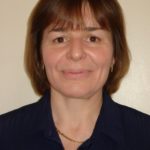Lien vers Pubmed [PMID] – 30139379
Stem Cell Res Ther 2018 Aug;9(1):226
The mammalian brain is a very complex organ containing an estimated 200 billion cells in humans. Therefore, studying human brain development has become very challenging given all the data that are available from different approaches, notably genetic studies.Recent pluripotent stem cell methods have given rise to the possibility of modeling neurodevelopmental diseases associated with genetic defects. Fibroblasts from patients have been reprogrammed into pluripotent stem cells to derive appropriate neuronal lineages. They specifically include different subtypes of cortical neurons that are at the core of human-specific cognitive abilities. The use of neurons derived from induced pluripotent stem cells (iPSC) has led to deciphering convergent and pleiotropic neuronal synaptic phenotypes found in neurodevelopmental disorders such as autism spectrum disorders (ASD) and their associated syndromes. In addition to these initial studies, remarkable progress has been made in the field of stem cells, with the major objective of reproducing the in vivo maturation steps of human neurons. Recently, several studies have demonstrated the ability of human progenitors to respond to guidance cues and signals in vivo that can direct neurons to their appropriate sites of differentiation where they become fully mature neurons.We provide a brief overview on research using human iPSC in ASD and associated syndromes and on the current understanding of new theories using the re-implantation of neural precursors in mouse brain.



